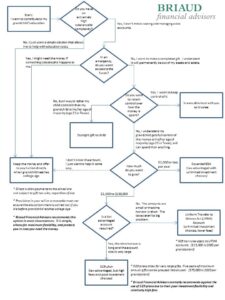In the fall of 1995, tuition and fees at Texas A&M were less than $2,750/year for a full course load. Fast-forward 25 years and that number has risen more than 10-fold since then. That calculates to a year-over-year increase of almost 10%.
At Rice University (Natalie’s alma mater), tuition increased from around $15,000 to more than $48,000, an almost 6% rate of increase. These numbers do not include the price of room, board and other living expenses.

To put these tuition numbers into perspective, during this same time inflation has averaged around 2%.
With the cost of college rising at such a dramatic rate, it is no wonder many have taken on great debt to pay for the cost. According to Debt.org, the average college debt among student loan borrowers is $37,172.
The question many of our clients ask is, “How do I help pay for my children’s or grandchildren’s college given the rising tuition costs?”
The simple answer is this: start saving and start saving early.
Saving for education expenses can be complicated
In some ways, saving for education expenses can be even more complicated than saving for retirement. First, the costs associated with the various types of accounts — and the investments they hold — are extremely variable and nearly impossible to predict. Second, the time horizons are shorter. Third, we recommend assuring that the rest of your financial house is in good order first, as we explained in this recent article about saving for retirement.
The next decisions to be made include how much to save and what savings vehicle to use. The chart below highlights our thoughts on the various education funding methods available today. Each has specific positive and negative qualities, so there is not one best option in all circumstances.
Options to save for college
- Fund a UTMA Account
- Fund a Coverdell Education Savings Account
- Fund a 529 Account
- Pay tuition directly
- Fund an Irrevocable Trust
Fund a UTMA Account
Asset of the child for FAFSA
Pros
- Unlimited investment options
- Simple to set up
- Reduces estate of the person gifting to child
- No penalty on withdrawals if used for something other than education
- Unlimited contributions (but limited by annual gift amount or lifetime gift amount)
Cons
- Earnings above $2,100 are taxed at parents’ rate
- Cannot be transferred to another child
- Becomes the unrestricted property of child at their age of majority (age 21 in Texas)
- Limited to annual gift limit ($15,000 in 2020) per person or must use lifetime gift ($11,580,000 in 2020) per donor
- Does not have to be used for education
- Counted as part of child’s assets for federal aid calculations
Verdict
We recommend a UTMA account for grandparents gifting to grandchildren
whose children are in a lower tax bracket & who do not mind the grandchildren receiving the money outright at the grandchild’s age of majority.
Fund a Coverdell Education Savings Acct
Asset of the account owner for FAFSA
Pros
- Earnings are tax-free if used for education expenses
- Unlimited investment options
- Reduces estate of the person gifting to child
- Can be used for K-12 education expenses
- Reduced impact on financial aid
Cons
- Limited contribution of $2,000 per year per child for 2020
- Income must be below $220,000 to contribute (this is not a deal-breaker but makes set up and funding more difficult)
- Taxes owed plus 10% penalty on earnings if distribution not used for education by age 30
- Congress has been debating reducing the contribution amount to $500 or removing the tax benefits and forcing these accounts to be rolled into a 529 plan
Verdict
We recommend a Coverdell ESA account for small contribution amounts. However, these can be a hassle to manage (especially if Congress changes the rules), so we would recommend paying tuition directly for larger education savings.
Fund a 529 Account
Asset of the account owner for FAFSA
Pros
- Earnings are tax-free if used for education expenses
- Reduces estate of the person gifting to child
- Amount withdrawn is counted as income for federal aid purposes but not the entire account
- Can contribute 5 years of annual gifts at once ($75,000 in 2020) but then any gift to that child for the next 5 years is subject to gift tax or part of the donor’s lifetime exclusion
- Can be moved from one child to another by custodian if set up properly in the beginning
- Can be used for K-12 education expenses, up to $10,000 per year
Cons
- Restricted investment options
- Limited to two trades every 365 days, including selling an investment and putting it in cash
- Taxes owed plus 10% penalty on earnings if distribution not used for education
- High fees on investments and trading
Verdict
We do not recommend a 529 account in most cases due to the lack of investment choices, high fees, and restrictions on trading.
Pay tuition directly
Pros
- Unlimited investment options
- Simple to execute
- Unlimited tuition may be paid directly and does not count toward $15k in 2020 annual gift amount or lifetime gift amount
- Guarantees the money is used for education
- Funds available to parent or grandparent in the case of an emergency
Cons
- Only reduces estate of person gifting by the amount of tuition
- No tax benefits on money set aside for education or earnings on that money
- Person gifting could die before making the gift (this can be mitigated through various estate planning tools)
Verdict
We recommend parents or grandparents set up a separate account for education expenses and pay tuition directly at the time it is needed. This gives maximum flexibility in terms of investments, which generally means higher returns and means that, if needed, it is still accessible by the parent or grandparent for emergencies.
Fund an Irrevocable Trust
Almost always the asset of the beneficiary
Pros
- Unlimited investment options
- Only limited by lifetime gift plus annual exclusion per child
- Reduces estate of the person gifting to child, and all earnings stay out of gifting person’s estate
- Can allocate Generation-Skipping exclusion such that gift passes to grandchildren without being in child’s estate
- Can set the parameters under which money can be withdrawn
Cons
- More costly to execute than the other options & need lawyer to create the trust
- Earnings are taxed at parents’ tax rate or at higher trust tax rates
- Trust will need to file annual tax returns
Verdict
We recommend an Irrevocable Trust for parents or grandparents as part of a broader goal of reducing estate taxes and gifting to children/grandchildren.
Want to know more about your options?
If you would like to learn more about what fits your specific situation, give us a call. We would be happy to share our ideas with you.
p.s. Here is a decision model we put together that further illustrates ways to look at education funding. We assumed a grandparent was looking at funding education for a grandchild when preparing this chart because that situation is more complicated than a parent funding their child’s education.


